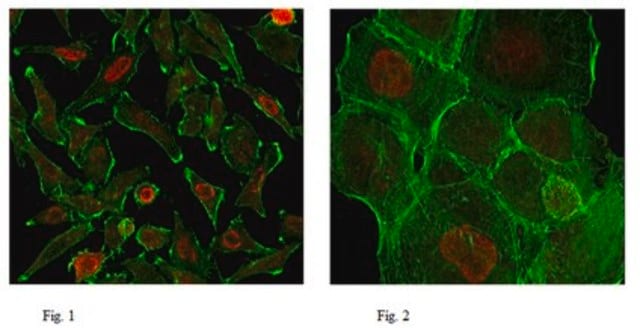PLA0127
Rabbit anti-RNA Polymerase II Antibody, Affinity Purified
Powered by Bethyl Laboratories, Inc.
Synonym(s):
220kDa, DNA-directed RNA polymerase II largest subunit, DNA-directed RNA polymerase II subunit A, DNA-directed RNA polymerase III largest subunit, POLR2, POLRA, RNA polymerase II 220 kd subunit, RNA polymerase II subunit B1, RNA-directed RNA polymerase II subunit RPB1, RPB1, RPBh1, RPO2, RPOL2, RpIILS, hRPB220, hsRPB1, polymerase (RNA) II (DNA directed) polypeptide A
About This Item
Recommended Products
biological source
rabbit
Quality Level
antibody form
affinity purified immunoglobulin
antibody product type
primary antibodies
grade
Powered by Bethyl Laboratories, Inc.
species reactivity
human, mouse
technique(s)
immunoprecipitation (IP): 1-4 μg/mg
western blot: 1:1,000- 1:10,000
accession no.
NP_000928.1
shipped in
wet ice
storage temp.
2-8°C
target post-translational modification
unmodified
Gene Information
human ... RNA Polymerase II(5430)
Immunogen
Physical form
Other Notes
Disclaimer
Not finding the right product?
Try our Product Selector Tool.
Storage Class Code
12 - Non Combustible Liquids
WGK
nwg
Flash Point(F)
Not applicable
Flash Point(C)
Not applicable
Certificates of Analysis (COA)
Search for Certificates of Analysis (COA) by entering the products Lot/Batch Number. Lot and Batch Numbers can be found on a product’s label following the words ‘Lot’ or ‘Batch’.
Already Own This Product?
Find documentation for the products that you have recently purchased in the Document Library.
Our team of scientists has experience in all areas of research including Life Science, Material Science, Chemical Synthesis, Chromatography, Analytical and many others.
Contact Technical Service







